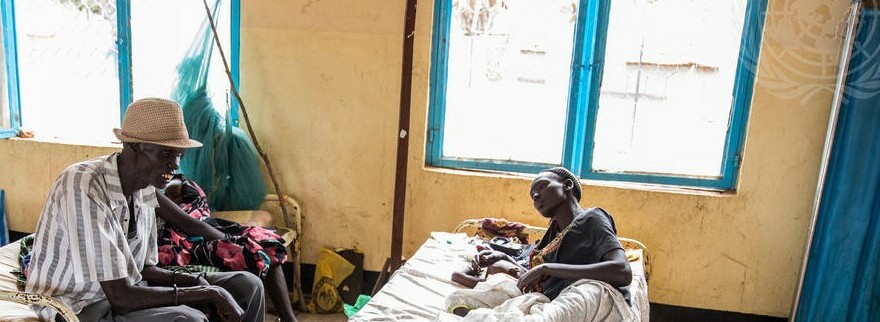Citizens in Warrap State have asked the state government to use collected revenue to fund the health sector and improve security.
This comes in the wake of an announcement by the State Revenue Authority (SRA) on Monday, revealing the collection of 161,843,288 South Sudanese Pounds (SSP) and 161,000 United States Dollars (USD) over a four-month period.
Ngor Dhuol Mangong, the Warrap State Commissioner General for Revenue Authority, acknowledged the significant challenges faced but highlighted the authority’s commendable revenue collection efforts in February, March, April, and May this year.
Speaking to Radio Tamazuj on Wednesday, several residents of Warrap urged the government to allocate the collected revenue towards addressing security issues and improving healthcare services throughout the state, citing poor healthcare services and security challenges in the state.
20-year-old Arol Deng Majok emphasized the urgency of utilizing the funds to combat sporadic violence in the state. He commended the government for its remarkable revenue collection achievements and called for the provision of services aimed at resolving insecurity among Warrap State communities.
Majok further expressed the need for the government to allocate funds to humanitarian assistance, particularly in remote areas affected by floods. He urged the authorities to prioritize food aid and shelter provisions, as well as the improvement of health centres. Majok remained optimistic that addressing security concerns would pave the way for addressing other community needs.
Another citizen, Ayak Mangong, highlighted the need for educational improvements. She pointed out that the government’s announcement of free education, as proclaimed by President Kiir, had not been effectively implemented in their state. Mangong raised concerns about private schools charging fees and inadequate teaching standards in government schools.
Mangong suggested that the government prioritize the welfare of its people by reducing food prices and ensuring the availability of essential medications, especially with the approaching wet season.
She called for measures to lower the prices of sorghum and sugar in Kuajok town and its surrounding counties using the collected revenue. Furthermore, she emphasized the necessity of the government procuring sufficient drugs and distributing them to the counties, as the prevalence of malaria is expected to rise during the wet season.
Meanwhile, Achai Arop Deng, a member of the State Legislative Assembly, reassured the public that the utilization of public funds would be closely monitored as part of their oversight role in parliament.
Expressing gratitude to the Revenue Collection Department, Deng emphasized her commitment to monitoring the expenditure of public funds. She cited the recent announcement by the Finance Minister and the Commissioner General for the Revenue Authority regarding the substantial collection of funds in South Sudanese Pounds and US dollars. Deng highlighted the passing of the taxation bill in the Assembly as a step towards ensuring accountability.
Deng pledged to oversee the executive branch, including the governor and ministers, particularly at the beginning of the upcoming month. She emphasized the importance of verifying that the funds are allocated to developmental projects and public services rather than diverting them to projects like the construction of the Assembly fence or the Secretariat General.




